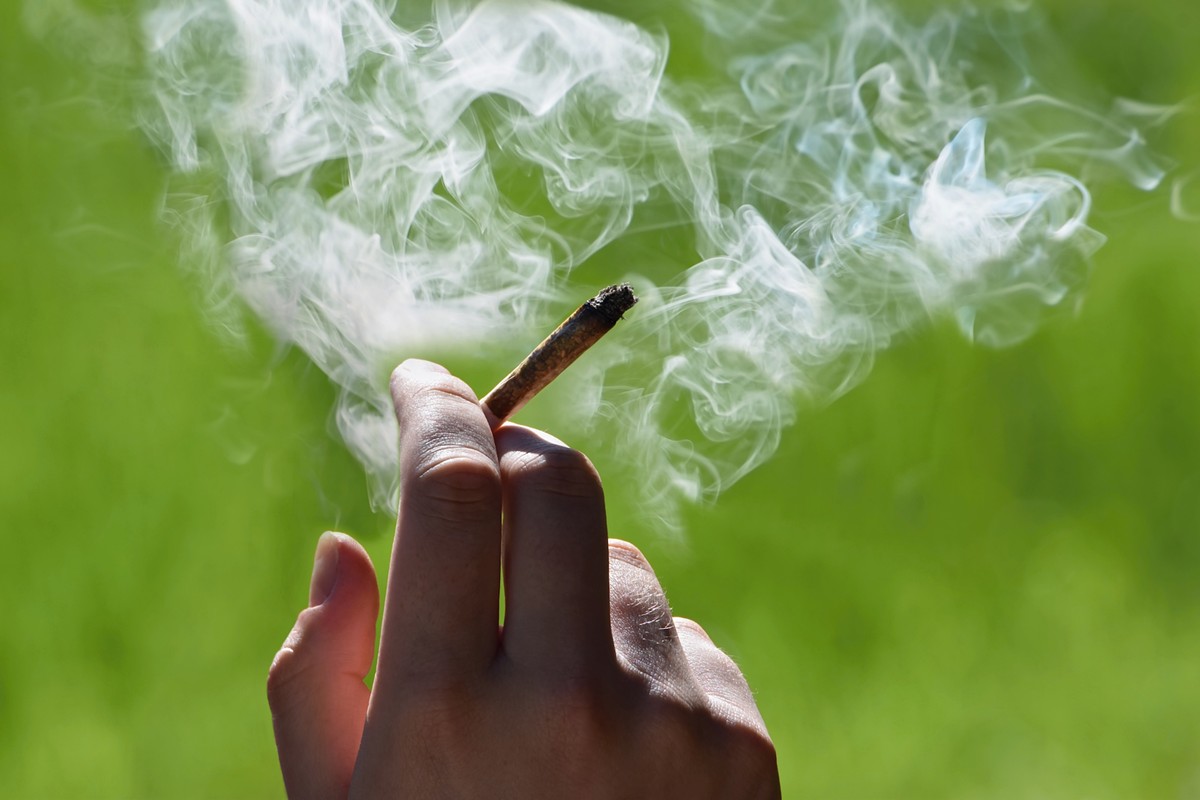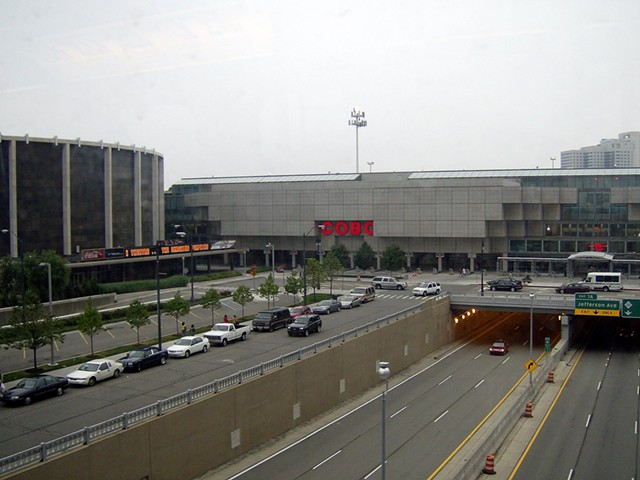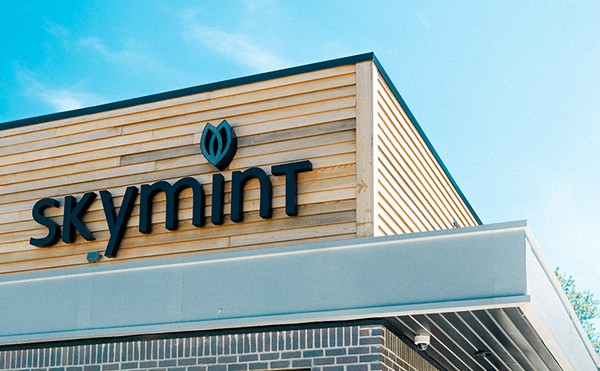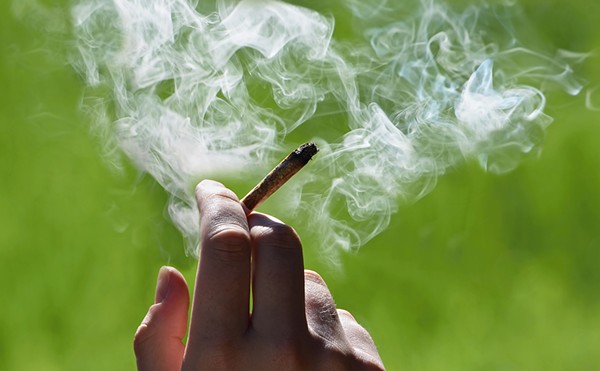Supporters of marijuana legalization are getting closer to taking the question to the people of Michigan. The Committee to Regulate Marijuana Like Alcohol turned in petitions to the state Bureau of Elections on Monday. If the state verifies that 252,523 signatures on the petitions are valid, we'll be voting on legalizing recreational use of marijuana next fall.
CRMLA reports having gathered well over 300,000 total signatures, with pre-verification measures showing more than 252,523 to be valid.
There was an awkward moment on the way to the triumphant turn-in of petition signatures by the Committee to Regulate Marijuana Like Alcohol. The CRMLA owed some $30,000 to National Petition Management for gathering signatures, and National wasn't giving up the signatures without being paid in full.
A fundraiser and appeal to donors took care of that financial shortfall and the CRMLA met its financial need for the moment. The group is going to need plenty more cash for the ensuing campaign, particularly when the naysayers start neighing. I expect it to be dirty but I also expect voters to do what they do almost every time they have a say in the matter and vote for legalization and access.
The recent vote in Detroit for Proposals A and B, which opt the city into the state medical marijuana system and relax some zoning requirements for provisioning centers, just shows again that if you get the question on the ballot the people will vote for it.
Even though those proposals were successful, it seems outrageous that it's taken nearly a decade for lawmakers at the state and city level to respond to voters' choices and accept a medical marijuana distribution system. The response has been mostly foot-dragging by legislators, outright cheating by law enforcement, litigation, threats, stealing the children of marijuana patients, arresting people running facilities, moratoriums, and alarmist propaganda ("plants as big as Christmas trees") — instead of trying to work it out.
All that lack of regulation created a situation statewide that many referred to as a Wild West of marijuana enterprises running roughshod across the state. In Detroit the result was a reported near-300 dispensaries, a number that alarmed many residents.
When the Detroit City Council took up the issue in response to alarmed citizens, the members created a strict ordinance that zoned marijuana shops away from businesses and residential centers. Pro-marijuana activists responded with two petition initiatives, Proposals A and B, that basically overruled the council's ordinance.
It looks like the city is ready to up the ante on this breast-beating confrontation by trying to take the proposals down in court. Pre-election Mayor Duggan's administration didn't voice an opinion for or against the proposals. But even before the election Detroit corporation counsel Butch Hollowell was opining that Proposal B is illegal.
And that's the strategy it looks like the city will pursue. At last week's City Planning Commission meeting Hollowell delivered an address assailing Proposal B and citing various precedents that he claimed made it illegal. The city claims that it should never have been on the ballot, although a Wayne County Circuit Court judge ruled in September to put it on November's ballot.
Later in the proceedings, the Planning Commission voted to recommend that city council pursue a lawsuit against Proposal B.
The entire meeting was something of an education in political theater. The public comment section of the meeting was scheduled for 7 p.m. But Hollowell's comments took place before the meeting was opened to the public. Then the commission staff put on a Power Point presentation on some amendments to the city's zoning ordinances that had been in the pipeline before the election. Staff members were careful to point out that these plans were pre-election and they may be impacted by election results. It was revealed that Councilmember James Tate had sent a note to the commission to postpone these considerations because of the election results.
But the commissioners pursued the discussion, saying that they had to by law. I expected fireworks because a number of anti-marijuana groups, incensed at the passage of the proposals, had called out for their supporters to pack the meeting. Supporters of each side showed up, although not in huge numbers. I counted about 75 folks in the audience. Most folks knew the drill, got up and made their comment pro or con in the two minutes allowed and sat down.
Most of the comments fell into the usual baskets and the players had their usual arguments rehearsed and ready. However there seemed to be an undercurrent of "we're in charge here and we're not going to let these proposals usurp our authority" from the city side of things.
Supporters of the proposal claim the government should follow the will of the people. But it looks like the city will pursue litigation and spend who knows how much city money to oppose Proposal B.
I talked to Councilmember Tate, who was the leader in writing the ordinances that Proposals A and B amend. As of Wednesday he said that city council had not discussed the election results. However he voiced the same arguments that Hollowell made to the Planning Commission on Thursday. So somebody is talking to somebody in the halls of the city.
He also explained the path the council has to walk in balancing the wants and needs of diverse citizens. On the dispensary issue, you have a faction that is clearly fearful of marijuana and alarmed that they see it in their neighborhoods, yet voting results show a substantial majority support for changing the laws.
"Depending on who you talk to, there are different levels of extremism," says Tate. "There are people stuck in reefer madness, other people who believe no rules are good rules. I have to look and listen to all sides of it."
While the council hasn't talked about it Tate says members are well aware that we may be looking at recreational legalization.
"Recreational? We want to get this right first," he says. "We've got to make sure anything we do is constitutional, and ask does it do more harm than good. We have to look at that on every law and initiative. ... I don't believe attacking the will of the voters is necessarily the way to go."
While many citizens find this a life and death issue and hang on every word of the narrative, Tate has a lot of things on his plate.
"The city of Detroit as a whole is in the midst of an opportunity for growth," says Tate. "We can right size things that have gotten out of control. ... [Marijuana] is something that is new. Like every other agenda item, it's not the largest but not something you have to ignore."
It was another round in the marijuana match — with many more to come.
For instance, five gubernatorial candidates — four Democratic and one Republican — recently met to discuss support for the MI Legalize petition. None of them were state Attorney General Bill Schuette, who is the leading Republican candidate at the moment. Schuette has also been the leading anti-marijuana activist in the state, doing his best to block implementation of the medical marijuana law.
There is indeed plenty more to come on this issue.







